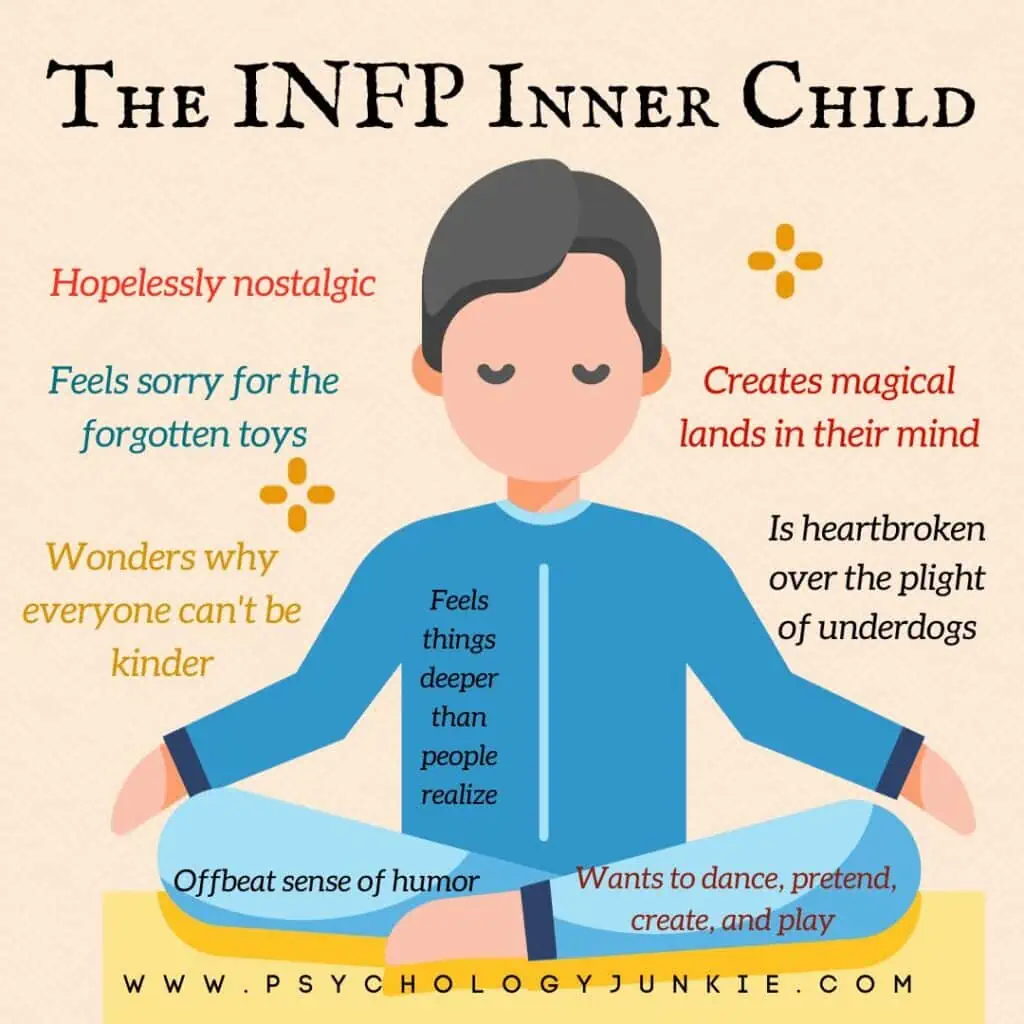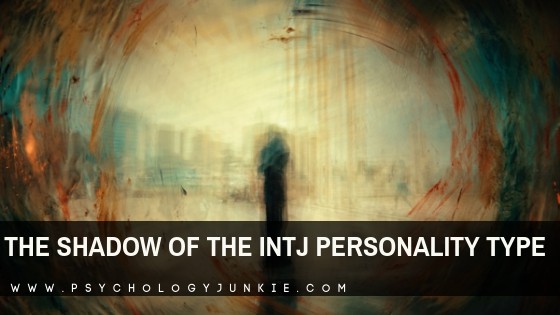Why INFPs Want to Heal the World (But Also Avoid It)
You’re scrolling through your feed, and there it is again.
Another wildfire. Another shooting. Another law that strips someone’s rights or dignity. And something in you cracks—again.

You want to do something. Fix something. Rally the world into decency.
But also?
You want to crawl under a weighted blanket, put on your favorite movie soundtrack, and disassociate into a cottagecore fantasy where your only responsibility is feeding the chickens and writing poems about moss.
Of course, your coping mechanism might be different, but just humor us…
You feel too much, care too much, see too much—and you don’t have the manual for what to do with all of it. Especially in a world that feels like it’s being run by greedy algorithms, cynical politicians, and people who think “self-care” means buying a $200 planner.
If this is you? You’re not broken.
You’re an INFP.
And this article is for you.
Let’s break down why your personality type is so deeply wired for idealism and overwhelm—and what you can actually do when the weight of the world feels like it’s pressing on your chest.
Not sure what your personality type is? Take our personality questionnaire here. Or you can take the official MBTI® here.
The Idealism–Burnout Cycle (AKA “Fi + Ne + Broken Planet = Existential Dread Burrito”)
Let’s start with the basics.
INFPs are built with the following cognitive function stack:
- Fi (Introverted Feeling): deep personal values, moral conviction, emotional absorption
- Ne (Extraverted Intuition): idea-generation, possibilities, pattern-hunting, “what if?”
- Si (Introverted Sensing): nostalgia, comfort zones, internal records of what’s felt safe
- Te (Extraverted Thinking): objective logic, action steps, system execution (but, uh… bottom of the stack, meaning it feels a little “iffy” to you)
But let’s get a little deeper…
Fi: The Conscience That Never Sleeps
You don’t just see injustice—you feel it in your body. You absorb pain like a sponge that never wrings out. Your heart whispers things like, “You should be doing more,” and when you try to rest, it throws guilt at you like a brick.
Fi wants to live in alignment with your highest values. What feels right, just, ethical, kind, and deeply you at your very core.
But the world rarely makes that easy.
So you internalize the dissonance. You blame yourself for not fixing it all. The injustice of the world feels overwhelming and lurking at every possible corner.
Find out more about Introverted Feeling Here: What Is Introverted Feeling (Fi)?
Ne: The Hope-Fueled Idea Flood
Your mind is a firehose of “what ifs.” You don’t just want to help—you can see all the ways things could be better. Every cause, every injustice, every broken thing sparks another potential solution.
The good news? You’re full of vision.
The bad news? You can’t shut it off.
And when the visions stack up faster than your capacity to act, your nervous system calls it a day and hands the mic to…
Si: The Blanket Fort Builder
You retreat. You shut down. You go back to something safe, warm, nostalgic. That one movie you’ve watched 16 times. That playlist you made in 2015. The soft hoodie you refuse to throw away.
It’s not laziness. It’s survival.
Your nervous system is waving a white flag, and Si is the only part of you that remembered to bring snacks.
Te: The Overworked Intern
Te is your inferior function. It’s supposed to help you execute ideas, organize plans, and take decisive action. But when you’re stressed or overwhelmed, it turns into a crabby intern that panics at spreadsheets and cries in the supply closet.
So even though your heart is screaming “Let’s change the world!”
Your brain is whispering “But how? And also… what’s my password again?”
That’s the INFP paradox: Your inner world is on fire with purpose. But the outer world feels too heavy to lift. So you collapse. Recharge. Try again.
Then collapse again.
It’s not weakness. It’s the natural byproduct of caring too much in a world that seems to care too little.
A side note:
Sometimes what you really need isn’t another self-help list—it’s someone who gets how your brain is wired and can help you work with it, not against it. That’s what my cognitive function coaching is for. Whether you’re lost in overwhelm, unsure of your type, or just tired of feeling like you’re not doing enough, I offer sessions where we unpack how your mind works, what’s holding you back, and how to move forward without betraying your values or draining your energy. It’s not about fixing you—it’s about understanding you.
Common Ways This Shows Up

(a.k.a. “Why You Feel Like a Failed Superhero in Pajamas”)
You’re not imagining things.
This cycle of idealism → overload → hibernation is real, and it’s happening on repeat.
Here’s how it tends to play out:
You Obsess Over Causes but Don’t Know Where to Start
You want to help the planet, rescue the underdogs, fight corruption, and make people feel seen—all before lunch. You’ve bookmarked 47 nonprofit websites. You’ve drafted the beginnings of a manifesto in your Notes app.
But where do you actually start?
No one tells you that wanting to do everything makes it almost impossible to do anything.
You Spiral After Reading the News
You’re just checking the headlines.
Then suddenly you’re two hours deep into climate collapse TikTok and wondering if your emotional support houseplants are enough to get you through the apocalypse.
Should you leave the country?
Should you create an underground bunker?
Should you be out there fighting to protect the endangered species you so love and care about?
You wanted to be informed. Now you just feel like screaming into a throw pillow.
You Start Ten Projects and Finish None
One day it’s a blog about conscious parenting.
Next day it’s a zine about social justice.
Then you’re building a trauma-informed art curriculum.
You’re not flaky. You’re inspired. Your mind keeps throwing out absolutely incredible ideas. And your Fi cries every time one slides down unfinished.
Finishing feels impossible because each project feels too important to mess up—and that perfectionism leads to… you guessed it: nothing getting done.
You Feel Guilty for Resting
You’ve barely slept, your chest feels like a pressure cooker, and all your body wants is a soft blanket and a nap.
But some inner voice goes, “You don’t deserve to rest. People are out there suffering.”
So instead of resting, you scroll. Doomscroll. Then guilt-scroll.
And then feel worse.
Or maybe you just feel stuck. Your mind freezes up. Everything feels impossible.
You Escape Into Fictional Worlds Instead of Facing This One
You don’t just enjoy fantasy stories—you relocate to them.
Books, anime, RPGs, fanfic—any world that isn’t this one.
Because in those worlds, the good guys win. The quiet ones matter. And emotional depth doesn’t get laughed out of the room.
But sometimes… this whole process feels like hiding. And then you feel even more disconnected and powerless.
None of this means you’re weak or broken.
It just means you’re trying to carry the emotional weight of the world without a proper support beam.
And now it’s time to build one.
What You Can Actually Do When the World Is On Fire (and You’re Out of Energy and Willpower)
Let’s be honest: The world doesn’t feel very safe right now. It’s loud, unfair, greedy, algorithmic, and somehow always on fire—literally and metaphorically. And when you’re an INFP, your nervous system isn’t built to block that out. You absorb it. You feel it. You want to fix it. But then, five minutes into “doing something,” you realize you haven’t eaten, you’re emotionally waterlogged, and your brain is halfway into a fanfiction daydream because it was just… too much.
So what do you do? How do you keep caring without collapsing?
Here are some ways to cope—without betraying your values or turning into a numb automaton.
Ground Yourself in Small, Consistent Actions
You don’t need to fix the entire planet. I promise. You are one soft-hearted human being—not a government, not a tech billionaire, not an omnipotent AI (and thank God for that). What you can do is pick one cause that breaks your heart the most, and then commit to one small action per week. Donate $5. Share a resource. Write a letter. Volunteer one hour a month. Track these in a cozy little journal—not as a badge of honor, but as a reminder that you are doing something, even if the news makes it feel like you’re shouting into the void. Te (your least favorite function) gets less scary when it’s broken down into small, non-overwhelming to-dos. Keep it bite-sized, manageable, and meaningful. Your nervous system will thank you, and your inner moral compass will stop yelling.
Redefine What “Saving the World” Actually Means
A lot of INFP suffering comes from unrealistic expectations—usually placed on yourself by… well, yourself. You have this aching need to do something big. Something important. But here’s the truth: big change almost never looks big in the moment. You think saving the world means organizing a protest or launching a social enterprise or creating the next viral documentary. But sometimes saving the world looks like making your neurodivergent friend feel normal for one afternoon. Or reading to a kid who’s having a hard time. Or creating art that lets someone else breathe for the first time all day. Don’t dismiss the small ripples. You never know what they’ll become. And, truth be told, a single act of compassion often does more good than 10,000 Instagram infographics.
Create an “Overwhelm Recovery Kit”
You know that moment when your chest is tight, your brain is foggy, and everything is too loud—even your own thoughts? That’s when you don’t need a lecture. You need comfort. Safety. Grounding. That’s when Si (your tertiary function) quietly taps your shoulder and says, “Hey… let’s go back to the things that made us feel safe once.” So let it. Make a list right now of the small, nostalgic, sensory things that bring you peace: a cup of Earl Grey with honey, your favorite Studio Ghibli film, that one playlist that sounds like a warm hug, your softest hoodie, a poem you loved in middle school. Put them all in a box, a list, a drawer—whatever works. And when the world feels uninhabitable, go to that kit. It’s not indulgence. It’s survival. You can’t save the world if you’re lying in a puddle of emotional burnout.
Balance Inspiration With Boundaries
Here’s the trap: you want to stay informed because you care. But the more you scroll, the more you spiral. Ne grabs hold of every headline and spins it into a worst-case scenario timeline where everything is ruined forever and your only option is to move to a forest and cry into fallen leaves. The answer isn’t apathy—it’s boundaries. Set limits on your news intake. Use apps that block doomscrolling after 15 minutes. Don’t read the comments (I did this just this morning and got angry and disillusioned with people, so I need to take this advice too). And for every piece of devastating news you absorb, do one thing that gives you joy or reminds you that beauty still exists: take a walk, make art, re-read your favorite book, play your favorite song three times in a row just because you can. You need both vision and recovery to stay in the fight.
Let Go of Perfection. Embrace the Messy, Half-Done Version
Fi wants moral purity. It wants to know that you’re doing the “right” thing in the “right” way for the “right” reasons. But that kind of pressure is paralyzing. You don’t need to be pure—you need to be present. Trying and failing is still better than numbing out because nothing feels perfect. Don’t let your high ideals become the enemy of progress. Do it messy. Do it scared. Do it imperfectly. And then go eat a snack. Most systems were built to be dehumanizing. Choosing to act with humanity, even when you feel like a mess, is a form of resistance.
Find (or Create) a Pocket of Like-Hearted People
You need people. I know, you’re independent. You feel weird in big crowds. Maybe you’ve tried to open up in the past and gotten eye rolls or polite nods. But your soul isn’t meant to carry all this alone. Find your weird little tribe. Join a Discord. Start a tiny online group for INFPs and over-thinkers who want to quietly change the world. Even just having one person to text when the existential dread kicks in can make all the difference. You don’t need to be surrounded by extroverts with megaphones. You just need someone who says, “Yeah… me too.”
Wrapping It Up…
Here’s the truth nobody tells you:
You are not lazy.
You are not flaky.
You are not too sensitive for this world.
You are just living in a time where apathy is easy, and you still care.
And that matters.
You wake up every day in a world that feels chaotic, selfish, and loud—and your first instinct is to feel it all, dream of better, and maybe even try to help. That is not weakness. That is courage. That is defiance in its softest, most beautiful form.
But you don’t have to burn out to be useful. You don’t have to martyr yourself for every cause. You don’t have to carry all the pain alone, and you definitely don’t have to fix the system single-handedly with nothing but vibes and caffeine.
You are allowed to rest. To play. To be silly and hopeful and small sometimes. You are allowed to say, “Not today, I’m making soup and watching Howl’s Moving Castle.” That doesn’t make you less of a change-maker. It makes you sustainable.
So take your time. Tend your fire. Wrap yourself in a blanket when the world is too much. And when you’re ready? Come back with your vision, your heart, and your deeply unconventional, magical brain. The world needs you.
If this spoke to you—if you’ve been carrying all this weight and wondering what’s wrong with you—there’s nothing wrong with you. You’re just an INFP in a very loud world. And if you want a little more insight into how your mind works, why you feel things so deeply, and how to move forward without losing yourself in the process, I made something for you.
My INFP eBook is a deep dive into your cognitive functions, your pain points, your strengths, and how to navigate life in a way that actually feels aligned with who you are—not who the world wants you to be. You can grab it here.
Or, if you’d rather talk one-on-one, I offer type clarification and coaching sessions where we can sit down (virtually), sort through the fog, and help you feel seen, understood, and supported. You don’t have to figure it all out alone.
Either way, I’m glad you’re here. The world’s better because of it.















“That’s what my cognitive function coaching is for. ”
I‘m a bit worried about the fact that some of the things my Fi focuses on are considered controversial by many people. I mean, I think we all generally agree, at least in principle, that something should be done about wildfires or diseases and stuff. But for certain other things, it‘s a bit different.
Hypothetically, if I have a view on something you happen to strongly disagree with, how would that work? I wouldn‘t want to make you feel uncomfortable or anything. All else being equal, harmony is important too.
Hi! I definitely understand that feeling. There are things I have pretty strong personal opinions about that if I told to everyone I know would definitely result in some fractured relationships potentially. Hypothetically, do you mean “you” in a general sense (people as a whole) or me specifically? If you’re asking about me specifically, I come at interactions with people from a place of curiosity, not judgment. So if someone expresses an opinion I disagree with, even strongly, I’m more curious about what led the person to that perspective. I don’t form a judgment, I just stay curious. The only times I’d judge is if the person was being outright degrading in his words towards me or another person. But as far as perspectives, opinions, worldviews, I think we all have a million stories that shape where we got those, and I don’t judge because I don’t know your story. So if I meet someone who I disagree with, say, politically, I’m curious what got them to that point, what life experiences informed that opinion, and what I might be missing about their story or their perspective. I kind of feel like if I knew everyone’s story I’d come at things with less judgment and more compassion. Does that answer your question?
Thank you for your response! I appreciate it.
Well, I meant “you” in a general sense, but I was also curious how this would apply within your coaching dynamics if I were pursue that option.
Won’t lie. This post made me choke up and feel the tears. I am barely an adult and I felt like I am drowning in all the heartless actions of the world. Especially when it comes to the children of this world. As an INFP, of course I dreamed of starting an orphanage and adopt and foster all the kids, babies and teens without a safe home. The smart small part really hit me. You have now inspired me! Thank you!